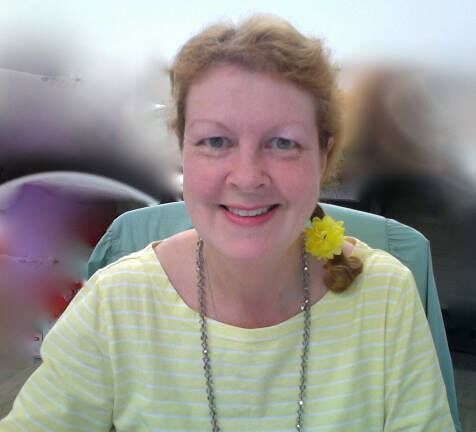An Act of Goodness
Posted by Literary-Titan

Until The Stars Align is the story of three young Jewish girls, their daring escape from the horrors of Nazi Germany, and their lives with foster families in England. What was the inspiration for the setup of your story?
I had been aware of the Kindertransport for years. I’ve always thought it was phenomenal that the British rescued 10,000 mostly Jewish children and started the program right after Kristallnacht, realizing what was coming. They let these kids into their country to live there safely, with foster families, away from the impending war. It knocks my socks off every time I think about it. What an act of goodness! Bravo, Britain!
So I came up with the idea of writing about a family impacted by the parents’ decision to send three children, cousins, to safety in England. Once there, the three are split up, and sent to live with different foster families, but they stay in touch and begin to adjust to their new lives. I also wanted to show what the biological parents were going through in Germany as they tried to arrange to emigrate. From all accounts, getting out of the Third Reich before the war started wasn’t easy.
How much research did you undertake for this book, and how much time did it take to put it all together?
I did quite a bit of research for it, as you can imagine! I’ve always been fascinated by the time period, so over the years I’d already read a massive amount of books about it, just out of curiosity. For this story, I read, and in one case re-read, true accounts of children who had been on the Kindertransport. I also consistently fact-checked every little detail that I could get my hands on regarding the time period in both England and Germany. I found out what train stations the transports left from, where they ultimately arrived, the way the children also had to ride ferry boats from Holland to England, how long the ferry took to get there in 1939 – everything like that. I also researched as many details as I could uncover about London during the Blitz, such as what it was like to take shelter from the bombs in the underground stations, how accidents increased during the blackout, or that sandbags lined a lot of the streets. I even found a website listing exactly when and where every bomb attack fell on London and referred to that before writing the part of the story where one of the foster families gets bombed out. I wanted to make this book as accurate a historical novel as possible.
But keep in mind, I’ve adored doing research since all the way back when I was a grammar school girl. For me, it becomes like a treasure hunt of sorts, looking for those elusive bits of information, and then, voila, finding them!
What were some challenges you felt were important to defining your characters in this story?
I created a whole lot of characters for this book in order to show as many different sides of their various experiences as possible.
The three girls have suffered discrimination in Berlin and it’s taken a toll on them, suddenly they’re being sent away from there, but to live with whole new families. It starts off from there, and there’s also the situations happening with the parents left behind in Berlin, the kind foster parents, the English homefront, the Battle of Britain, and more. Above and beyond all else, there’s no mail service between England and Germany once the two countries go to war with one another, so the big pervasive question for these three resettled children in England is what’s going on with their relatives back home?
What is the next book you are working on, and when will it be available?
I’ve worked on a cozy mystery that will be available soon. It’s called There’s No Cure for Impossible. How’s that for a title? It’s about a young gal who learns the toxic friend she wrote off just kidnapped a baby. It was another fun one to write!
Author Links: GoodReads | X (Twitter) | Facebook | Website | Blog | YouTube | Amazon
It’s June 1939. Three young Jewish girls, Rosi, her sister Anni, and their cousin Emilie, wait to board the Kindertransport train that will take them away from Nazi Germany, and a life of discrimination, to kind foster families in England. The parents hate to let them go, but realize it’s for their own good, and that it may just be their only chance of survival. When guarded Rosi arrives in London, she’s placed in the East End with a welcoming family of “Pearlies,” and begins to blossom into the happy young girl she was originally born to be, before the Nazis disrupted her world. Anni goes to live with upper-crust foster parents and their shy daughter, and Emilie with a newsagent and his wife. They like their new country and adore their “new parents,” but what has happened back home in Berlin to their “old” parents? By 1945, when there are still no answers, Rosi is determined to find out. Will the stars align to bring about a reunion or is it already too late?
Posted on June 26, 2024, in Interviews and tagged author, book, book recommendations, book review, book reviews, book shelf, book trailer, bookblogger, books, books to read, booktube, booktuber, Carolyn Summer Quinn, ebook, fiction, goodreads, historical fiction, Historical World War II Fiction, indie author, jewish literature, Jewish Literature & Fiction, kindle, kobo, literature, nook, novel, read, reader, reading, story, trailer, Until The Stars Align, writer, writing. Bookmark the permalink. Leave a comment.
Comment Cancel reply
This site uses Akismet to reduce spam. Learn how your comment data is processed.



Leave a comment
Comments 0